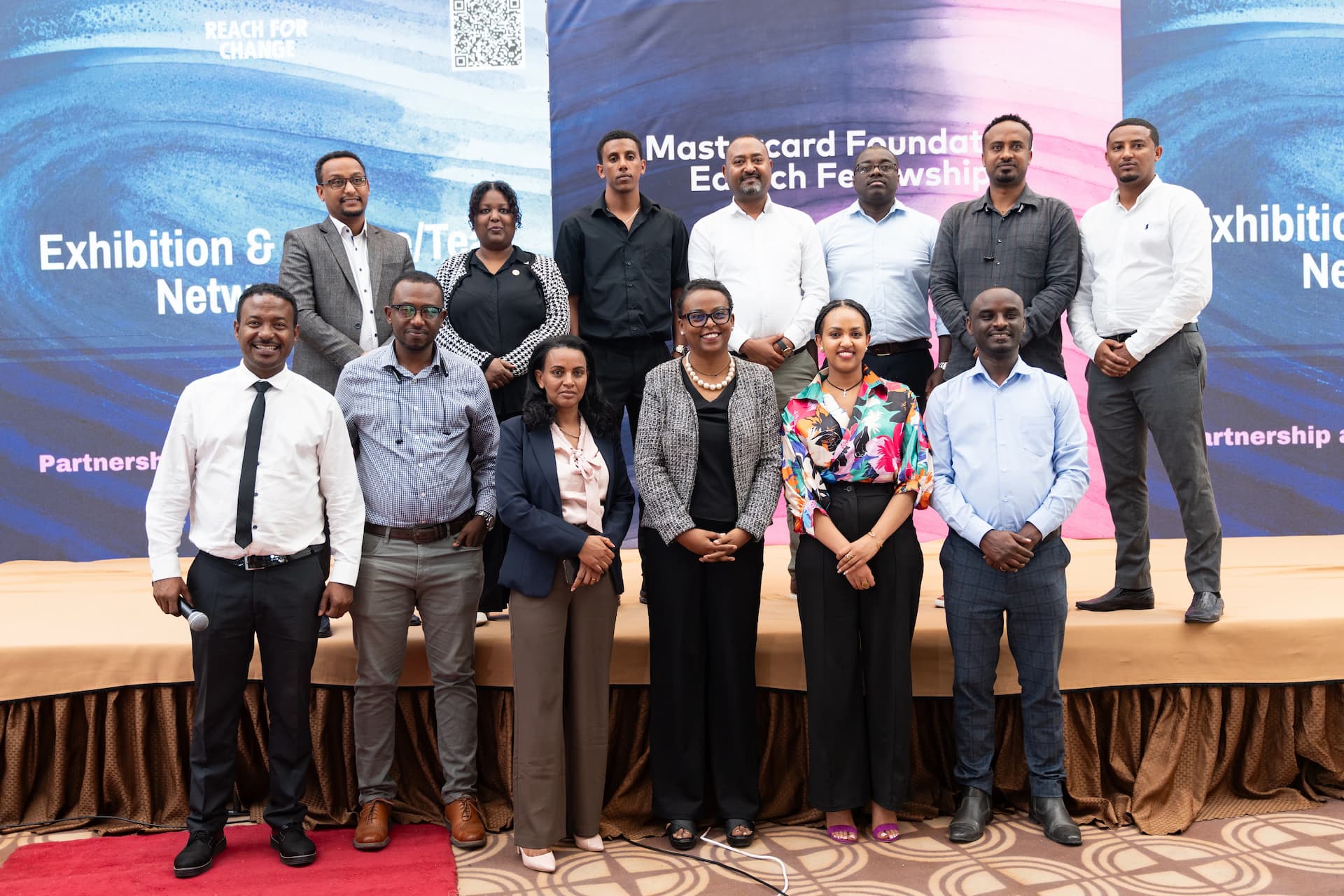Progress for 0 ad
Progress for 1 ad
Progress for 2 ad
Progress for 3 ad

Partner Content
Addis Ababa, Ethiopia

Last Thursday in Addis Ababa, Ethiopia’s emerging EdTech community gathered at the Capital Hotel for a packed full-day session.
The EdTech Partnership and Networking Event was co-hosted by Reach for Change Ethiopia and Shega’s EdTech Community, a monthly meet up that has been running for the past two years.
Aimed at strengthening collaboration across Ethiopia’s EdTech ecosystem, the event brought together more than a hundred participants innovators, policymakers, investors, educators, and development partners from organizations including Safaricom, Ethio Telecom, AGGP – Jasiri, Social Enterprise Ethiopia, FSD Ethiopia, Ambo University, the Addis Ababa Angels Network and others.
The day opened with a powerful address by Mekdim Gulilat, Ethiopia Country Manager at Reach for Change, who framed the discussions as a collective mission and urged participants to collaborate through dialogue, learning, and practical exchange. “What partnership can I initiate today that will make our education ecosystem more inclusive and future-ready?” she asked, setting a reflective and action-oriented tone for the day.
Building on this call, Muluken Nigatu (PhD), CEO of the Teachers and Educational Leaders Development Organization under the Ministry of Education, highlighted the transformative role of teachers in shaping Ethiopia’s educational future. Speaking on the topic “EdTech and Entrepreneurship for Inclusive Growth,” he stressed the need to strengthen teacher capacity, particularly in underserved and rural areas, and emphasized collaboration between innovators and policymakers to ensure equitable learning opportunities.
“The history of education has placed teachers at the heart of transformation,” he noted. “We must serve teachers so they can better serve students.”
Muluken moreover underscored the potential of digital tools to enhance teaching and learning while cautioning that technology must be accessible and meaningful for all educators. With only 9% of rural Ethiopians having internet access compared to 42% in urban areas, Muluken highlighted the importance of designing solutions that address these disparities.
The day’s agenda also featured two panel discussions: a morning session on “Strengthening Partnerships for EdTech Growth,” moderated by Zacharias Taddesse, Project Manager at Reach for Change, and an afternoon session on “Building User-Centered EdTech Solutions,” moderated by Yabisra Kefalegn, a communications professional. The program also included an exhibition showcasing products from the Mastercard Foundation EdTech Fellows, along with spotlights and interactive displays. This vibrant showcase of learning tools created a rare space for founders, investors, educators, and government representatives to connect, sparking meaningful cross-sector dialogue.
The highlight of the day was the learning session on “User-Centric Marketing,” led by Solomon Twum, who has been with Reach for Change for nearly a decade first as Country Manager for Ghana and now as an Advisor.
Solomon began by reminding participants that innovation in Ethiopia “doesn’t happen in isolation. It happens in the middle of constraint in the spaces where private and public sectors, ideas, and ambition meet reality.” Technology and innovation, he noted, can amplify impact, but true transformation stems from empathy, purpose, and persistence.
“Real innovation starts when you go outside, listen deeply, and come back with insight,” he noted. Urging innovators to resist building what merely seems exciting and instead focus on understanding the genuine needs of users.
“When you build from the outside in, you don’t just create a product you create relevance.” Solomon added, underscoring the importance of designing solutions rooted in the lived experiences of teachers, students, and parents especially in rural communities with limited connectivity.
According to Solomon, a product is not just an app or a platform, but a promise one that blends experience, trust, and emotional connection.
Differentiation is crucial, and even small local insights can make a product stand out, such as integrating Ethiopian folk stories into literacy tools. He also stressed that innovation is not only about inventing new technology but about adapting as user needs evolve, citing examples like apps that shift from teaching children to read to helping parents manage screen time or stress.
Before the event concluded with closing remarks and next steps, it highlighted both the promise and the challenges of Ethiopia’s EdTech sector. Discussions underscored that understanding the market, fostering collaboration, and sharing resources are essential for startups to scale, particularly as over 75% remain in early stages.
👏
😂
❤️
😲
😠
Partner Content
Partner Content is a collaboration between us and our partners to deliver sponsored information that aligns with your interests.
Your Email Address Will Not Be Published. Required Fields Are Marked *